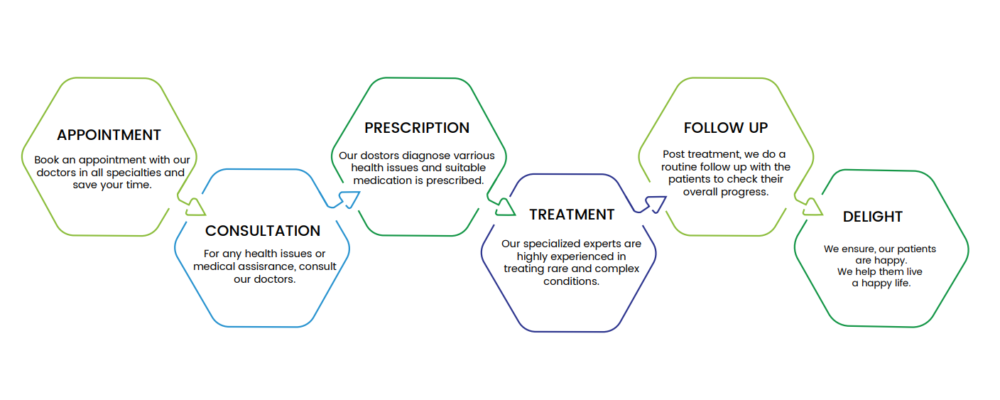Gynaecology
Gynaecology is a medical specialty focused on the health of the female reproductive system, encompassing a wide range of conditions and diseases affecting the uterus, ovaries, fallopian tubes, and vagina. Gynaecologists are trained to diagnose, treat, and manage these conditions, as well as provide preventive care and guidance on reproductive health. This field covers various aspects, from routine screenings and reproductive health to complex surgical procedures and management of chronic conditions.
Key Areas of Gynaecology
Gynaecology addresses numerous areas related to women’s health, including:
- Preventive Care: Routine screenings such as Pap smears, pelvic exams, and breast exams are crucial for early detection of conditions like cervical cancer, ovarian cancer, and breast cancer. Preventive care also includes vaccinations, like the HPV vaccine, which helps prevent cervical cancer.
- Reproductive Health: Gynaecologists provide care related to menstruation, contraception, fertility, pregnancy, and menopause. They offer contraceptive counseling, fertility treatments, and manage menstrual disorders such as dysmenorrhea and menorrhagia.
- Infections and STIs: Diagnosis and treatment of sexually transmitted infections (STIs) such as chlamydia, gonorrhea, syphilis, and HPV are key components of gynaecological care. Gynaecologists also treat vaginal infections, including yeast infections and bacterial vaginosis.
- Chronic Conditions: Conditions such as endometriosis, polycystic ovary syndrome (PCOS), and uterine fibroids require ongoing management. Gynaecologists provide medical and surgical options to alleviate symptoms and improve quality of life.
Common Gynaecological Conditions
Gynaecology deals with a variety of common conditions that can significantly impact a woman’s health and well-being:
- Endometriosis: A painful condition where tissue similar to the lining of the uterus grows outside the uterine cavity, causing pain, irregular bleeding, and infertility. Treatment includes pain management, hormonal therapies, and surgery.
- Polycystic Ovary Syndrome (PCOS): A hormonal disorder characterized by irregular menstrual cycles, excessive hair growth, acne, and obesity. Management includes lifestyle changes, medications to regulate menstrual cycles, and fertility treatments.
- Uterine Fibroids: Non-cancerous growths in the uterus that can cause heavy menstrual bleeding, pelvic pain, and reproductive issues. Treatment options range from medication to minimally invasive procedures and surgery.
- Pelvic Inflammatory Disease (PID): An infection of the female reproductive organs often caused by STIs. Early diagnosis and treatment with antibiotics are crucial to prevent complications like infertility.
- Ovarian Cysts: Fluid-filled sacs within or on the surface of an ovary. While many cysts are benign and resolve on their own, some may require medical intervention if they cause symptoms or complications.
Diagnostic Techniques in Gynaecology
Accurate diagnosis in gynaecology relies on a combination of clinical evaluation, laboratory tests, and imaging studies:
- Pelvic Examination: A routine part of gynaecological check-ups to assess the health of the reproductive organs and detect abnormalities.
- Ultrasound: An imaging technique used to visualize the uterus, ovaries, and other pelvic structures. It helps diagnose conditions like fibroids, cysts, and ectopic pregnancies.
- Pap Smear: A screening test for cervical cancer that involves collecting cells from the cervix. Abnormal results may lead to further testing, such as a colposcopy.
- Colposcopy: A procedure to closely examine the cervix, vagina, and vulva for signs of disease, often following an abnormal Pap smear. Biopsies may be taken for further analysis.
- Hysteroscopy: A procedure using a thin, lighted tube to inspect the inside of the uterus. It is used to diagnose and treat conditions like polyps, fibroids, and abnormal bleeding.
Treatment and Management in Gynaecology
Treatment strategies in gynaecology aim to address symptoms, manage conditions, and improve overall reproductive health:
- Medications: Depending on the condition, gynaecologists may prescribe hormonal treatments (like birth control pills or hormone replacement therapy), pain relievers, antibiotics, or other medications to manage symptoms and treat infections.
- Minimally Invasive Procedures: Techniques such as laparoscopy and hysteroscopy allow for the treatment of conditions like endometriosis, fibroids, and ovarian cysts with reduced recovery times and lower risk compared to traditional surgery.
- Surgical Interventions: In cases where medication and minimally invasive procedures are insufficient, surgeries like hysterectomy (removal of the uterus), myomectomy (removal of fibroids), or oophorectomy (removal of ovaries) may be necessary.
- Fertility Treatments: For women experiencing infertility, gynaecologists can provide treatments ranging from medication to assist ovulation to advanced reproductive technologies like in vitro fertilization (IVF).
- Lifestyle and Preventive Care: Gynaecologists often provide guidance on healthy lifestyle choices, including diet, exercise, and weight management, which can significantly impact reproductive health. Preventive measures also include regular screenings and vaccinations.
Why Choose Medhelp International for Gynaecology Services?
Medhelp International is renowned in Islamabad for its excellence in Gynaecology care, and here’s why:
Expert Gynaecologists: Our team consists of highly skilled and experienced Gynaecologists who specialize in the diagnosis and treatment of a wide range of women’s health issues. They are dedicated to staying updated with the latest advancements in Gynaecology to ensure the best care for our patients.
State-of-the-Art Facilities: We have invested in modern technology and advanced diagnostic equipment to provide accurate evaluations and efficient treatment options. Your reproductive health deserves nothing but the best.
Comprehensive Services: At Medhelp International, we offer a wide range of gynaecological services, including:
- Routine Check-ups: Regular gynaecological check-ups are essential for early detection and prevention of women’s health issues.
- Obstetrics and Prenatal Care: We provide complete prenatal care, guiding expectant mothers through a healthy pregnancy journey.
- Family Planning and Contraception: Our team offers counselling and a range of contraceptive options to empower women to make informed choices.
- Gynecological Surgeries: Our skilled surgeons perform procedures such as hysterectomies and laparoscopic surgeries, utilizing minimally invasive techniques for faster recovery.
- Treatment of Gynecological Conditions: Whether you are dealing with issues like endometriosis, polycystic ovary syndrome (PCOS), or reproductive organ abnormalities, we offer comprehensive management.
- Menopause Care: We provide support and solutions to manage the physical and emotional changes that come with menopause.
Patient-Centric Approach: At Medhelp International, we prioritize our patients’ concerns and well-being. Our team ensures that you receive personalized, compassionate care, and we are dedicated to your comfort and peace of mind throughout your gynaecological journey.
Gynaecological Care for Everyone
We believe that women’s reproductive health is essential for everyone, and it affects families and communities as a whole. Our services are accessible to all individuals, men and women alike, because women’s health is a universal concern. Our experienced Gynaecologists, state-of-the-art facilities, and patient-focused approach make us the top choice for gynaecological services in Islamabad. Don’t wait to address your reproductive health concerns – reach out to us today for a comprehensive evaluation and personalized care.


Medhelp International Process


